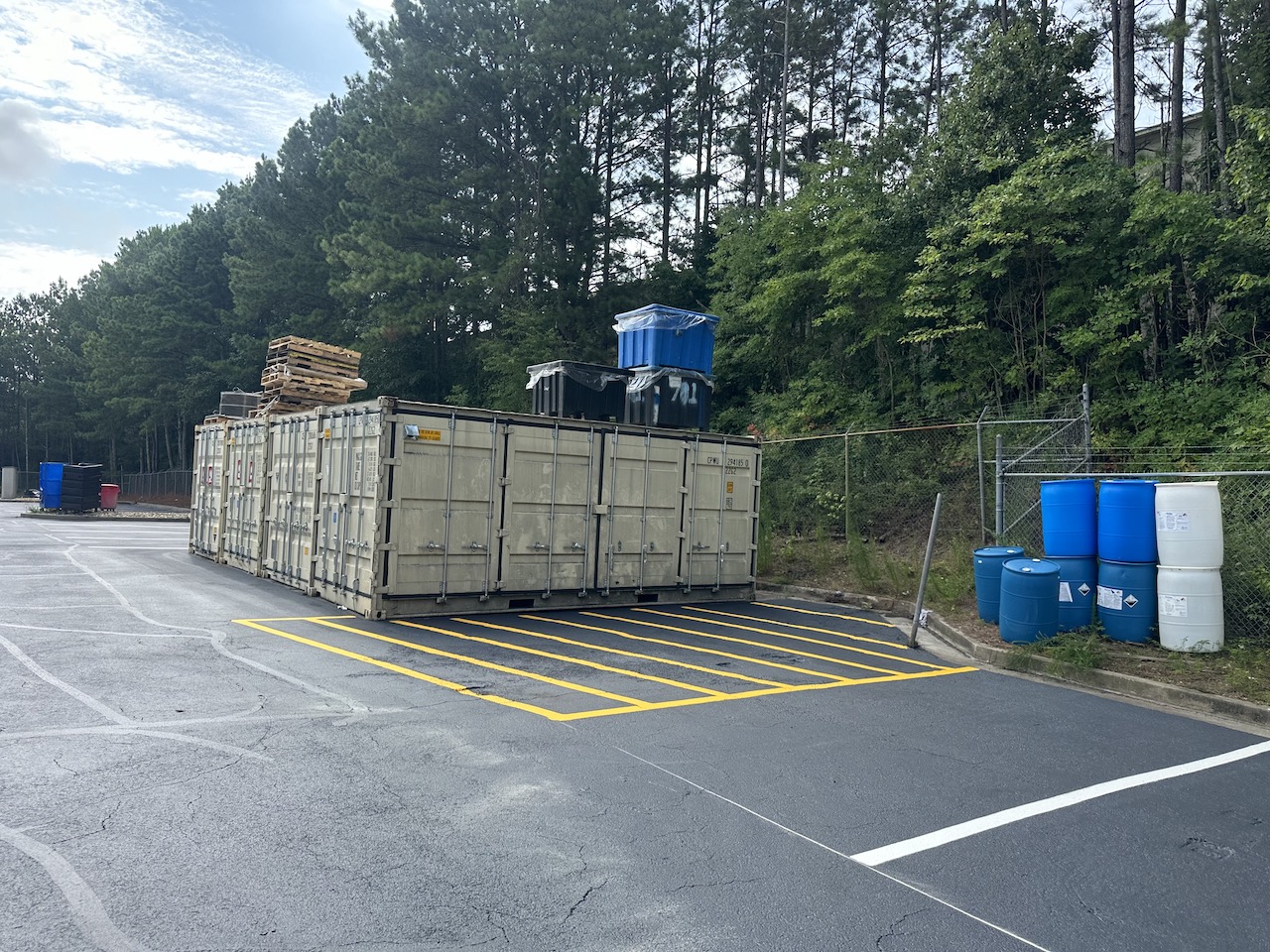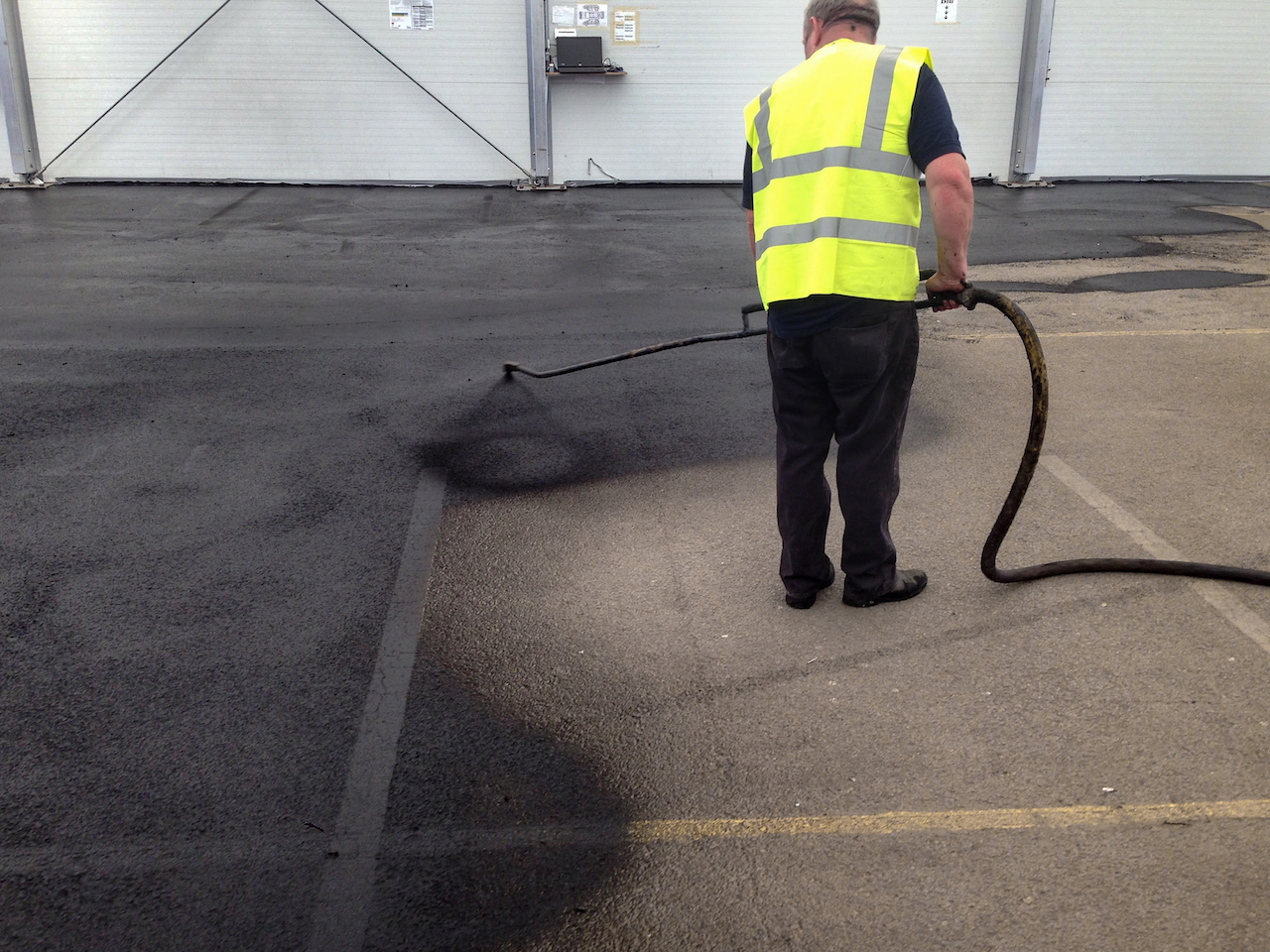
Asphalt Pavement Contributes to Cleaner Air
Fuel Consumption and Vehicle Emissions
Asphalt makes a very smooth pavement, which can reduce fuel consumption by 4 to 5 percent compared to a rough pavement. Asphalt pavement is faster to install and repair than concrete, so traffic jams are reduced; in turn, there are fewer idling cars pumping fumes into the air and consuming additional fuel.
Emissions from Manufacturing Plants
Beginning in the 1970s, the asphalt industry became extremely proactive about reducing emissions from asphalt plants. As a result of their efforts, emissions were reduced by 97 percent even as production increased 250 percent. The EPA rates asphalt plants as contributing only “minor” amounts of industrial air pollution. Furthermore, asphalt production requires less energy than the production of other forms of pavement, meaning that asphalt plants have a lower carbon footprint than plants producing other types of paving materials.
Asphalt Pavement Helps Reduce Cooling Costs
Cities suffer from a phenomenon known as the heat island effect. In rural areas, the abundance of trees and other vegetation, natural air circulation and less pavement combine to help keep temperatures lower. In cities, the air temperature can be several degrees higher than in the surrounding countryside. The heat does not dissipate as well, so the overnight difference can be even higher than the daytime difference. Higher temperatures in the city lead to an increased use of air conditioning, and the increased energy demands raise the level of greenhouse gases emitted during energy production. Thick, impervious pavements — such as concrete — tend to retain heat. However, open-graded asphalt pavement tends to release its heat quickly. Overnight measurements have shown that asphalt pavement can be more than 20 degrees Fahrenheit cooler than nearby concrete pavement.
Recycling of Asphalt Pavement
When many people think of the benefits of recycling, they focus on reducing the demand for raw materials. While recycling asphalt pavement certainly reduces the demand for new petroleum distillates, it also requires less energy to produce recycled asphalt pavement than to produce new pavement. It is possible to recycle every crumb of asphalt pavement, and over 99 percent of the asphalt pavement is recycled and reused. In addition, when recycling asphalt pavement to make new asphalt pavement, manufacturers can often recycle other materials that would have found their way to landfills, including asphalt shingles, aggregates and tires. Every year, more tons of asphalt pavement is recycled that the combined weight of glass, plastic, paper and aluminum that is recycled.
Asphalt Pavement Is the Wise Choice
From city streets to parking lots, asphalt pavement is an environmentally friendly choice. It is also durable, economical, safe and attractive.
MH Greeson Paving is an asphalt company in Marietta, GA and serves the Atlanta area. We offer asphalt paving, sealcoating, asphalt patching, parking lot striping and pavement markings, and we also install bollards, car stops and traffic signs. We deliver true value to our customers through exceptional quality and affordable rates. If you have more questions about how Asphalt Pavement Contributes to Cleaner Air, or would like to receive a free quote, you can make your request by using our online form or calling (770) 335-2983.




